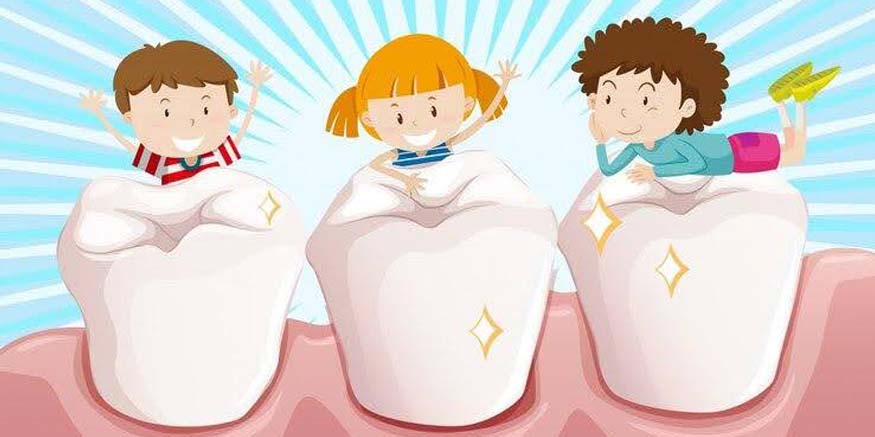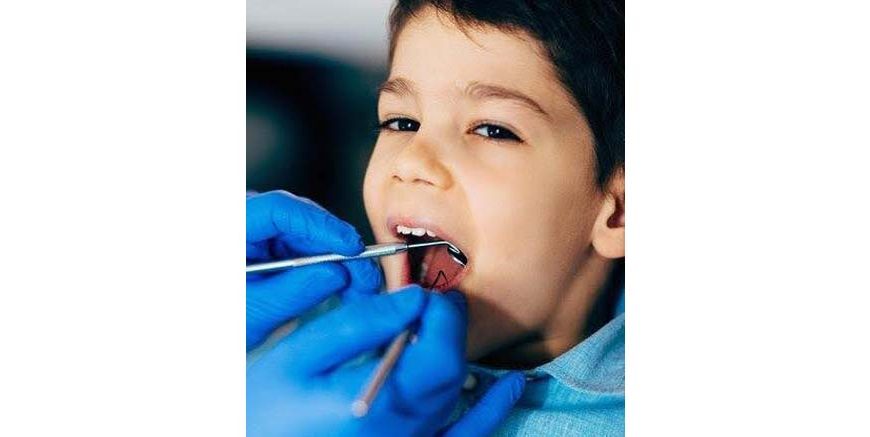Toddlers are also very active, and as a parent, you need to make sure that you give your toddler a healthy mouth. Gum diseases can be classified as cavities, and it is essential to note that ignoring them can lead to chronic troubles and pains. However, there is evidence that shows that most young children consume foods and drinks with high sugar content and a certain degree of acidity, which causes the formation of cavities among toddlers. Well, in this article, let me help you understand the factors that contribute to the formation of cavities in kids, the list of foods you should avoid by your kids and ways on how you can avoid it.
Table Of Content:
- Cavities in Kids
- Causes of Cavities
- Other Factors That Contribute To The Development Of Cavities
- List Of Foods That Cause Tooth Decay
- How to Prevent Tooth Decay
- Fostering Positive Dental Habits
Cavities in Kids:
A cavity, cavities or caries is a condition or process of permanent localized destruction of the hard tissue of crown and root of the tooth due to various factors such as bacteria in the CA, often consuming snacks, having sugary beverages, and improper or poor oral hygiene. Almost a quarter of children two to five years of age did suffer from decay of the baby teeth. These are also referred to as temporary teeth due to the fact that they are the first teeth that a baby develops and requires to have. These are involved in chewing and speaking; They also act as placeholders for the permanent teeth that develop to replace the deciduous teeth. Gum diseases can cause severe pain and spread of infections while untreated cavities not only result in pain and infections affecting the baby teeth but can also lead to early loss of these teeth which are important space maintainers for permanent teeth and may also cause misalignment of these permanent teeth later on.
Causes of Cavities:
Cavities are typical oral diseases due to the formation of dental plaque, which is a thin film of bacteria that accumulates on the teeth surface. In specific, whenever ‘junk’ food is taken, the bacteria within the plaque release acidic substances that erode the tooth enamel, the toughest exterior of the tooth. Instead, over time, this acid attack can create holes or cavities in the teeth, explains the web page. Other factors that contribute holes or cavities in the teeth.
Other Factors That Contribute To The Development Of Cavities Include:
- Poor oral hygiene:
- Frequent snacking:
- Sipping sugary drinks:
- Dry mouth:
Lack of frequent brush and flossing enables plaque formation and it starts attacking the outer protective layer of our teeth known as enamel.
Consumption of conspicuous sweets or other carbohydrate products offer the bacteria in the region constant meals or energy source throughout the day.
Juices, sodas, teas, coffees and even milk act as Sugary Beverages and leave a layer of sugar on the teeth leading to formation of cavities.
The saliva aids in washing away food particles and also in the neutralizing of the acidic levels in the mouth however; conditions such as lack of water in the body or even certain forms of medication can lead to lack of saliva in the mouth and thus require an increase in the chances of a cavity.
List of Foods that Cause Tooth Decay:
While it’s essential to limit your toddler’s overall sugar intake, some foods are particularly damaging to tooth enamel and should be avoided or consumed in moderation:
- Hard candies:
- Sugary drinks:
- Dried fruits:
- Crackers and chips:
- Gummy vitamins :
- Sweetened yogurt:
- Sugary cereals:
These candies can easily get trapped in between gaps of teeth and therefore even after consuming them, the sugar remains on your teeth for a long time hence causing cavities.
Soda, fruit juice and sweetened drinks are as chemically active on the teeth as they dissolve the tooth enamel progressively.
Despite being sources of Vitamin, minerals and fiber, they are sticky food items containing very dense fructose and sucrose on which bacteria in the mouth cling on the teeth resulting in formation of cavities.
The fact is that starchy snacks can be occasionally reduced to sugars which seems to supply nutrition to the bacteria that forms plaques.
Some gummy vitamins have additional sugars that are suitable to cause tooth decay if one does not wash the mouth with water or if they are left on the teeth after having a meal.
As you are aware, yogurt is very good for our organism but this sort of yogurt with different flavors (vanilla, strawberry etc) possesses contributing sugars which are detrimental to teeth.
It is important to note that a large proportion of non-organic breakfast cereals contain large portions, measured in teaspoons, of added sugars that weaken tooth enamel from the time you consume food.
How to Prevent Tooth Decay:
While it’s impossible to eliminate all cavity-causing foods from your toddler’s diet, there are several steps you can take to help prevent tooth decay:
- Encourage water consumption:
- Limit sugary and acidic drinks:
- Promote healthy snacking:
- Establish good oral hygiene habits:
- Schedule regular dental visits:
- Consider dental sealants:
- Lead by example:
By this it is understood that water wash off food debris and lowers concentration of acids which contribute to formation of cavities.
Reduce the intake of juices, sodas and sweetened drinks and beverage drinking water or low fat milk instead since these ‘bath’ teeth in sugar and acid.
Provide lesson-appropriate snacks such as fruits, vegetables, cheese, and others but not sweets like candies and chocolates.
Brush the toddler’s teeth when the first tooth comes in, use a soft bristled toothbrush that is designed for toddlers along with a smear or a pea sized amount of fluoride paste.
The guidelines set by the American Academy of Pediatric Dentistry call for the child’s first dental appointment before the child turns one year or within six months of getting the first primary tooth.
Dental sealants are thin which is painted on the pits and grooves of the posterior teeth with an aim of preventing bacteria from getting through hence reducing the formation of cavities.
Ensure you have proper oral hygiene; brush your teeth regularly and floss; it is also important to involve the little child doing the brushing and flossing.
Fostering Positive Dental Habits:

Good habits of dental care should be established at early ages to ensure proper dental care in the future, and a toddler is the best candidate to start from. Kids should develop the habit to brush their teeth while using music or songs or even a toothbrushing application or video. Children should be encouraged to be more careful during brushing episodes, and this can be done by praising the child when they are careful or even offering sweet words and even stickers. Another thing that should also be pointed out is the need for a child to see parents or guardians practicing good oral hygiene too. Toddlers tend to emulate everything they see and do that parents do hence ensuring that both you and your toddler brush and floss your teeth together especially in the morning can make the child emulate the same activities. Also, functions to emphasize on provision of dental care and educating the child on effects of cavities in a manner they understand will enable the child to understand the need to take care of his/her teeth. If parents make sure that their kid follows some cavity preventive diet coupled with regular brush, dental check and a little encouragement, they are sure to have strong teeth throughout childhood and the later years. So being cautious of what your toddler meets with in terms of foods and drinks and facilitating the best habits of dental care as from that age, you will be safe and sure of your child having a cavity-free mouth forever.
For more such interesting blogs, Visit EuroKids
















